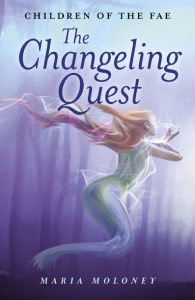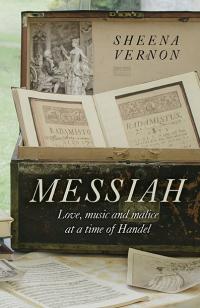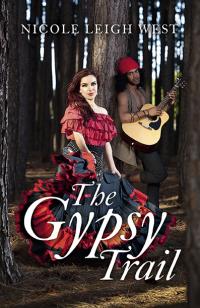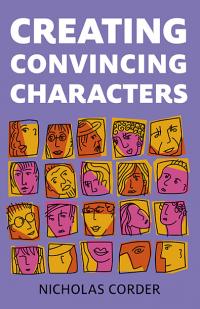
 In the past year or so, articles have been written and comments made that criticise
adult readers and writers of young adult fiction in a way that makes both seem shameful or embarrassing to do. It seems, looking at Nick Hornby's quote from his column in Believer magazine, things
haven't much changed from previous years: "I see now that dismissing YA books because you’re not a young adult is a little bit like refusing to watch thrillers on the grounds that you’re not a
policeman or a dangerous criminal…" (October 2007).
In the past year or so, articles have been written and comments made that criticise
adult readers and writers of young adult fiction in a way that makes both seem shameful or embarrassing to do. It seems, looking at Nick Hornby's quote from his column in Believer magazine, things
haven't much changed from previous years: "I see now that dismissing YA books because you’re not a young adult is a little bit like refusing to watch thrillers on the grounds that you’re not a
policeman or a dangerous criminal…" (October 2007).
I quite agree, but there are others that don't. In the article with the challenging title, "Against YA" (slate Book Review, June 2014), the critic Ruth Graham uses a subtitle of Read whatever you want. But you should feel embarrassed when what you’re reading was written for children. She goes on to say that the largest group of buyers of YA fiction are between the ages of 30 and 44. "I’m surrounded by YA-loving adults, both in real life and online," she states. "Today’s YA, we are constantly reminded, is worldly and adult-worthy. That has kept me bashful about expressing my own fuddy-duddy opinion: Adults should feel embarrassed about reading literature written for children."
There is an unmistakable snobby quality in the way Graham writes, which advocates reading literary fiction while debasing reading YA novels. In her opinion, we (as adults) should find it beneath our dignity to read YA, and as a mature reader, she herself enjoys reading intricate stories about people with whom she doesn't empathise. As if to validate my own thoughts, she writes, "Fellow grown-ups, at the risk of sounding snobbish and joyless and old, we are better than this." Personally I can't think of anything less enjoyable than unsympathetic characters. I also heartily agree with Kurt Vonnegut: "Literature should not disappear up its own asshole, so to speak."
In The New Yorker (October 21, 2013) James Wood discusses the reading of children's literature in his review of Donna Tartt's Pulitzer Prize winning book The Goldfinch, which although aimed at an adult audience is often viewed as YA fiction, chiefly because of the young adult main character: "Like the rest of us, Donna Tartt ages; but her fiction is going the other way. Her new novel, 'The Goldfinch' (Little, Brown), is a virtual baby: it clutches and releases the most fantastical toys. Its tone, language, and story belong to children’s literature." Having read this, I have to disagree. Yes, young adults could read the book; however, the story is told from the viewpoint of a thirteen-year-old boy and for me the style works. This is not an adult posing as a coming-of-age teen, this is the boy himself and everything is seen from his thirteen-year-old perspective. This book is YA for adults.
Some of the greatest books every written are of course children's or young adult literature: Alice in Wonderland, The Hobbit, The Secret Garden, Watership Down, To Kill a Mockingbird, His Dark
Materials (Trilogy) and The Book Thief and hundreds more. Whether it was meant to be for adults young or old, The Goldfinch I feel, like the Harry Potter series, is here to stay. We all remember that
great book or books from our childhoods that helped to shape us, and often read or recommend them to our own children and grandchildren. And, as writers, they are often what encouraged us to write in
the first place.
The argument goes on, and in the more recent New York Times article (September 2014), A.O. Scott proclaims the death of adulthood in American culture: "In my main line of work as a film critic, I
have watched over the past 15 years as the studios committed their vast financial and imaginative resources to the cultivation of franchises (some of them based on those same Y.A. novels) that
advance an essentially juvenile vision of the world."
All the disapproval of writing and reading YA only highlights that this market is huge. Thankfully many promising authors have ignored the criticism and continue to write good strong fiction that will encourage Young Adults to read, providing good imaginative stories with strong heroes, and dealing with issues that teenagers have to face from day to day. YA fiction has worlds bursting with diverse characters from a variety of backgrounds. Stories and themes are wide-ranging and imaginative and appeal to a broad audience. Yes, it could be said that YA fiction these days is rather dark, but we live in a dark world, and the writing often reflects this.
Young Adult fiction is now the fastest growing category in the publishing world. And in 2012 a Bowker Market Research study indicated that 55 per cent of buyers of YA fiction are over 18. It seems
the Harry Potter books led the way in this, making it trendy among adults to read them. This led to comments such as, "Oh, you haven't read Harry Potter? Oh, you must." (Or words to that effect.)
Some of us had children who grew up with these books. We saw they looked interesting and read them together with our child or children, and after they had gone to bed, carried on reading them. (Much
like when you were at school and there was a slow reader reading aloud and you had the book under your desk and were miles ahead!)
Indeed it was the Harry Potter series that led to my interest in YA fiction and, together with Krystina Kellingley, to starting the YA imprint Lodestone Books.
There is nothing shameful, in reading or writing YA fiction and it's a shame that literary critics so often decry this. Looking at the world of YA is looking at the world of our own children through their point of view: the children who will one day be the people who run our governments. Scary isn't it? – or then again, perhaps not. It's adults who have made this world for our children and our children are making the best of it, adjusting to it, and learning to live in a dysfunctional world created by us – the adults. I hope they make a better job of it then we have.
So having established that writing for the YA audience is actually a challenge you would like to undertake, and having overcome any embarrassment and read dozens of novels in the category, where do you start?
Of course I could say write about what you know, but plenty of authors write about what they don't know and research, or employ a mixture of both. What I would say though, is write what you enjoy,
and draw on your own childhood experiences as well as what you observe around you.
When it comes to themes, these shift. There can at times, after a successful series, be a spate of copycat literature. However, as long as subjects have a new angle they may still work. It's
advisable though to keep an eye on what's trending in popularity.
So what's hot in YA literature?
Well it's not surprising to see, among recent lists of the best or most popular YA literature, the Harry Potter books (fantasy), The Hunger Games series and Divergent (Dystopian), and The Fault in Our Stars (there's no dumbing down in this humorous romantic teen angst, cancer-lit book). But avoid trying to write a Harry Potter-esque story, publishers still get inundated with works that have similar characters and themes. The same with The Hunger Games series.
There seems to be a lull in vampires after the Twilight series, mainly owing to many authors attempting to ride on the coattails of Meyer's success, though fiction that involves fighting demons still
works well.
Fantasy fairytale retellings are growing in popularity. Lodestone Books has the novel Briar Blackwood's Grimmest of Fairytales.
Dystopian fiction is still popular, with a growing trend of a stronger romantic take (the series Delirium by Lauren Oliver along with Matched by Allie Condie are examples of this).
Romance themes are rising in popularity. This is regardless of genre (see point above).
Realism is on the increase with books about everyday issues teenagers have to face (The Fault in Our Stars and The Perks of Being a Wallflower). Lodestone Books has recently published Reggie & Me
by Marie Yates, the first in a trilogy. The story concerns Dani, told through her diary as she starts a new school in the wake of her rape and subsequent court case, and is a unique take on the
notion of being a survivor.
Series remain popular with young adult fiction readers. In planning, it helps if you have an idea of how the plot of the series will play out. It's much harder to decide to write a second and third book as sequels to what was meant to be just one, unless each book is completely self-contained with a new adventure each time. Preferable is that the story is an ongoing one, with some element of closure at the end of each novel, rather than a cliff-hanger.
It's equally important to think like a teen. Never talk down to your reader; you need to be on their level and writing from their viewpoint (as with The Goldfinch, it works well). You'd be surprised at the number of novels that are written that "tell" the tale, contain author intrusion and have an author narrator (who is often middle-aged). Remember also that teens don't tend to over-analyse themselves, others or events, they see things a little more simply than adults do. They often act without thinking, and judge others, without a thought for the consequences.
Sex, drugs, gender issues, drinking, violence, abuse and self-abuse happen in the lives of our teens. You can't pretend they don't and completely avoid dealing with them. Try to address at least some of these issues, even in a small way, though it doesn't have to be the main theme. Teens can be surprisingly mature at times, so do also give them their sensible moments.
About 65 per cent of YA fiction is written in the first person, present tense. Books written in the present tense have more immediacy, which appeals to today's teens. Shorter punchier sentences work
better. And do please avoid pages of backstory and get straight into the action. You need to hold the attention of the average teen, whose attention span is probably shorter than ever before owing to
the digital age.
Whatever your book is about, whoever the characters are, behind all good YA literature is good storytelling. Write a cracking tale. But do get writing as the book won't write itself. Take this advice
from Richard Bach: A professional writer is an amateur who didn’t quit.
Buy Paperback: AMAZON UK BARNES & NOBLE INDIEBOUND
Buy ebook: AMAZON UK BARNES & NOBLE HIVE
This article was first published in The Writer's Wheel Magazine Issue 4
Categories:
0 comments on this article







